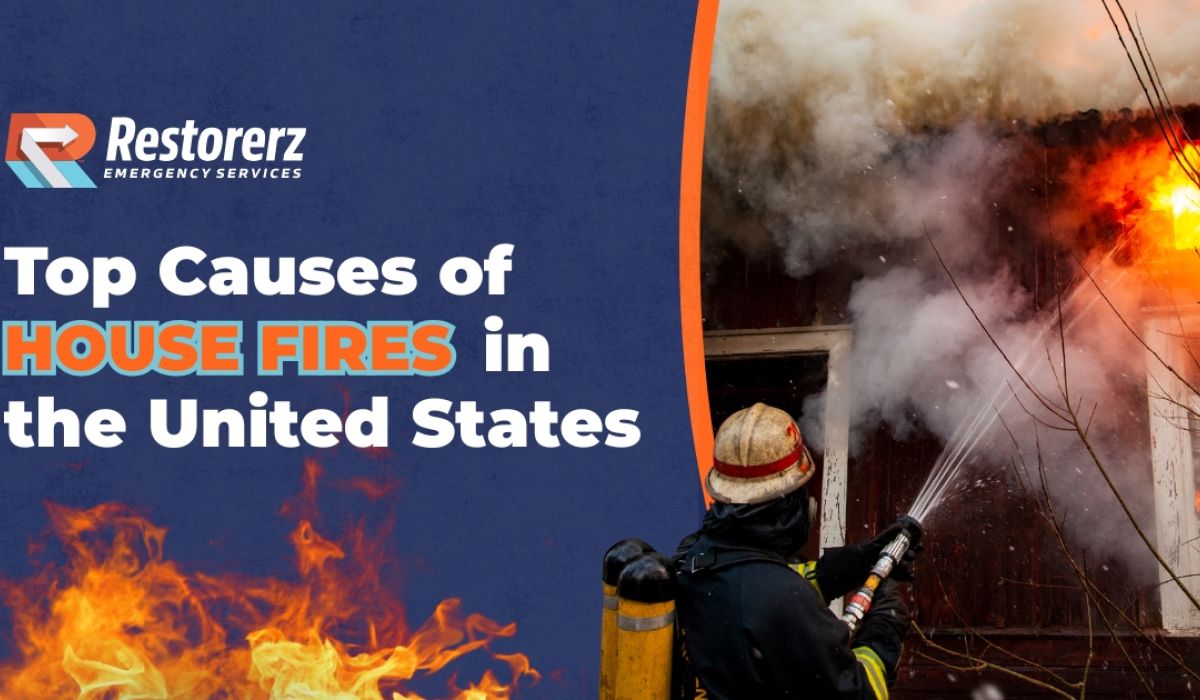What Causes Pipes To Burst?

CEO, Restorerz Emergency Services
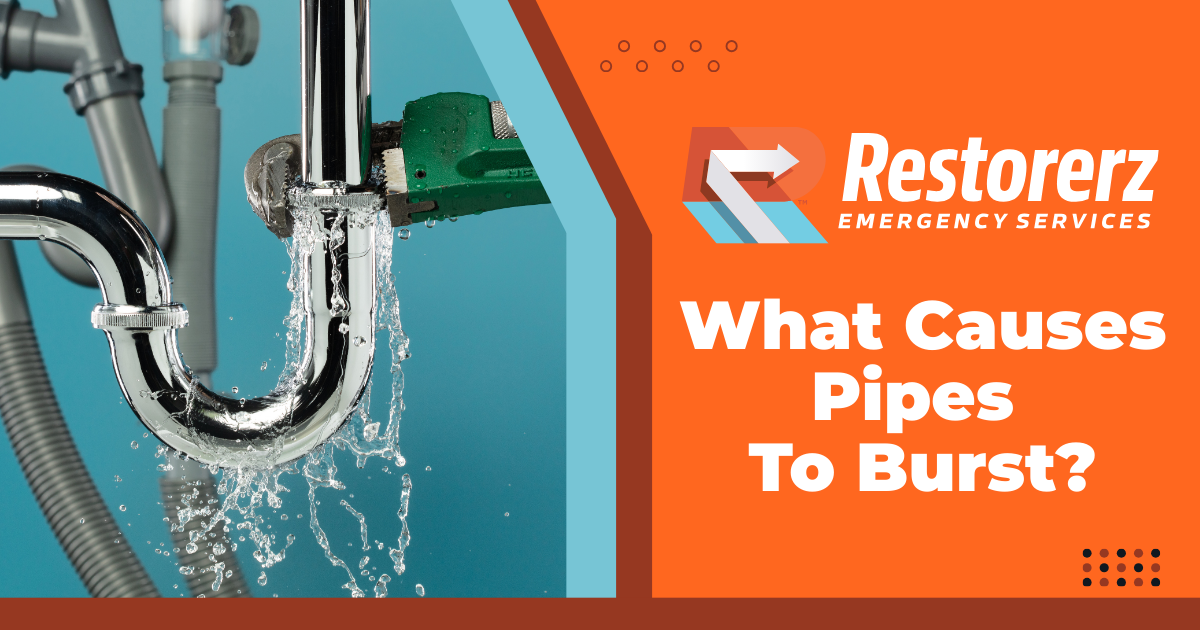
A burst water pipe can quickly turn your basement into a walk-in shower, but it can also cause water damage, mold, and costly repairs. Several factors can increase the risk of a burst pipe in your ceiling or walls. Understanding why pipes fail and taking the necessary steps afterward helps protect your property and household. Learn about the causes of pipe bursts and how Restorerz in Los Angeles can help with minor leaks, burst pipes, and water damage restoration.
Why Do Pipes Burst in Homes?
Pipes burst when their structure is unable to withstand stress, such as excessive water pressure or external conditions. Bursts aren’t always obvious or sudden, and they can occur behind walls or beneath foundations, making them harder to detect. Some burst pipes are dramatic, and a single rupture may release gallons of water in just a few minutes, while a smaller rupture may have a slower, more covert flow.
If your pipe bursts, water may rapidly spread across floors and walls and cause structural damage, potential health issues from mold, and electrical hazards. An undetected but smaller leak can also cause a similar degree of damage, albeit over a longer period, and may not show obvious signs until the damage has already become widespread.
Common Causes of Burst Water Pipes
Burst pipes result from different and often overlapping factors, and understanding each helps you work proactively against them to prevent water damage and protect your plumbing system.
Clogs and blockages
Grease, food, hair, and other debris can lodge inside a pipe and restrict flow. In areas with hard water, sediment further narrows the pipe passage. Underground lines can attract tree roots that enter through tiny cracks and eventually obstruct the line. As the passage constricts, pressure increases behind the blockage, and may concentrate at weak spots, such as corroded walls or damaged joints, until the pipe cracks or bursts.
Frozen pipes
Pipes that are uninsulated or located in unheated areas, such as basements, exterior walls, or garages, are more vulnerable during freezing temperatures. Water in the pipes expands as it freezes, taking up more space inside the pipe and increasing pressure. Enough pressure can crack or burst the pipe, particularly at joints or weak spots.
Repeated freeze–thaw cycles also fatigue materials. Even if the rupture doesn’t show during the freeze, the pipe can split as temperatures increase and flow resumes.
Age or deterioration
Plumbing materials can last for decades, but they still experience gradual wear and tear. For example, PVC pipes can become brittle, and water with high mineral content can accelerate corrosion in galvanized steel and copper pipes. As the walls of pipes deteriorate and thin, they’re more likely to burst in cases of high water pressure, blockages, or freezing. Older homes often have outdated and deteriorated pipes that are more vulnerable to bursts.
High water pressure
The recommended water pressure for a residential plumbing system is between 40 and 80 psi. Water pressure exceeding 80 psi stresses pipe walls and plumbing components, such as fittings and valves, and may eventually lead to a rupture.
High water pressure can stem from issues like malfunctioning pressure regulators, high municipal water pressure, or thermal expansion from overly hot water. Sudden surges, also known as water hammer, can occur when appliances or valves shut off quickly, sending pressure shockwaves through the system.
Poor installation or maintenance
Low-quality materials, improper joining, or poor plumbing design and installation increase the risk of stress on your pipes. For instance, incorrect pipe sizing can amplify changes in water pressure. Neglected maintenance also allows small leaks, corrosion, and other issues to go unnoticed until a pipe fails.
Ground movement
Earthquakes, erosion, and soil compaction can displace and stress pipes, leading to cracks or misalignments that can eventually result in bursts. Even seemingly minor rain or construction activity can cause soil to shift and gradually put more stress on pipes.
Signs You Have a Broken Water Pipe
Recognizing the early signs of a broken water pipe helps prevent further plumbing or water damage. Watch for these warning signs:
- Standing water
- High water bills
- Unusual sounds, such as hissing, banging, or running water
- Musty or mildewy odors
- Visible patches of mold
- Discolored or rust-hued water from your faucets
- Fluctuating or low water pressure
- Wet spots or water stains
- Bubbling paint, peeling wallpaper, or cracks in the wall
- High indoor humidity
What To Do Immediately After a Pipe Bursts
If you discover a burst pipe, act quickly to limit further damage and prevent safety hazards. Follow these steps after a pipe bursts:
- Step one: Shut off the main water supply to stop flooding.
- Step two: Disconnect the electrical circuits to prevent electrocution hazards by flipping the breaker off at your electrical panel. If you suspect that water may have reached outlets, fixtures, or appliances, stay out of the area and contact a professional to inspect and verify the safety of the area.
- Step three: Use towels, mops, or a wet-dry vacuum to remove most of the standing water and prevent water damage from spreading.
- Step four: Locate the broken pipe, note which rooms are affected, and take photos to assess and document the damage in case you need to make an insurance claim.
- Step five: Call a professional plumber to stop leaks, repair damaged sections, and inspect the rest of your system for vulnerabilities. In the event of widespread flooding or water damage, arrange for professional restoration to dry out affected areas and prevent mold growth.
- Step six: If the damage is extensive, contact your insurance provider to initiate a claim.
Protect Your Pipes With Restorerz
While pipes may sometimes fail without warning, they often show warning signs that can alert you to potential hazards. If you notice fluctuating pressure, discolored water, or recurring damp spots, schedule an inspection before a minor issue escalates into a major problem, such as a flooded basement. Contact us at Restorerz to schedule inspections, maintenance, or emergency repairs today.

![What is Green Mold [Comprehensive Guide]](/wp-content/themes/yootheme/cache/ef/Restorerz-What-is-Green-Mold-1200x630-10.22.2025-v1-efa9ac85.jpeg)
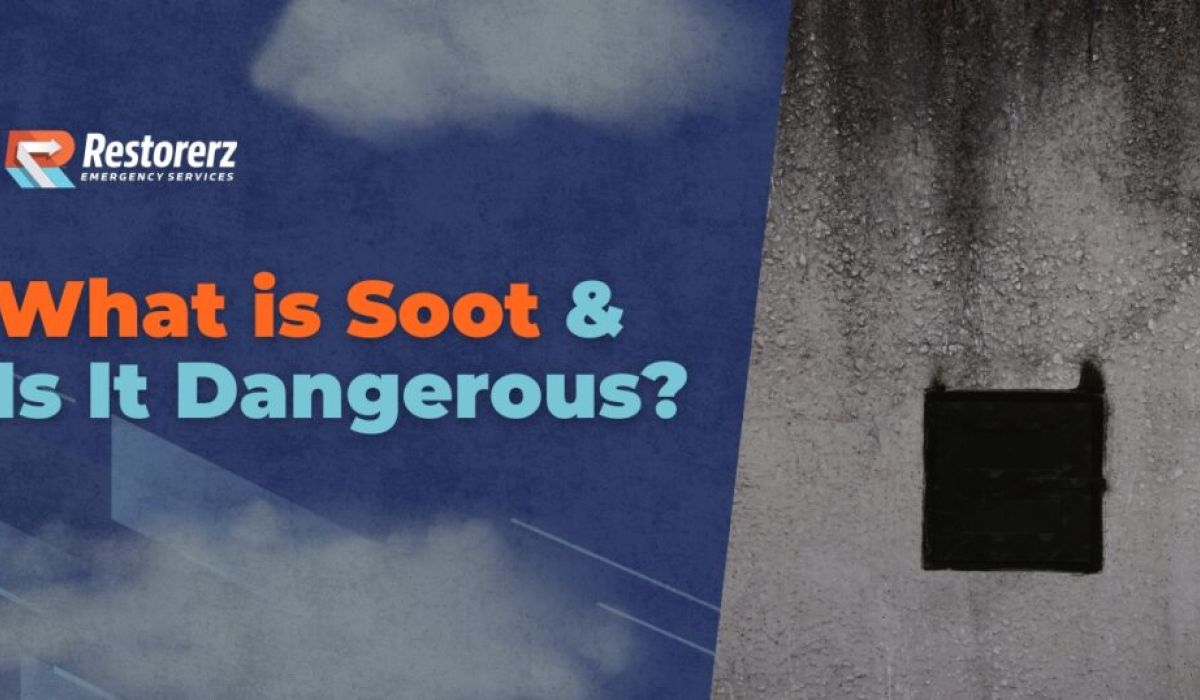

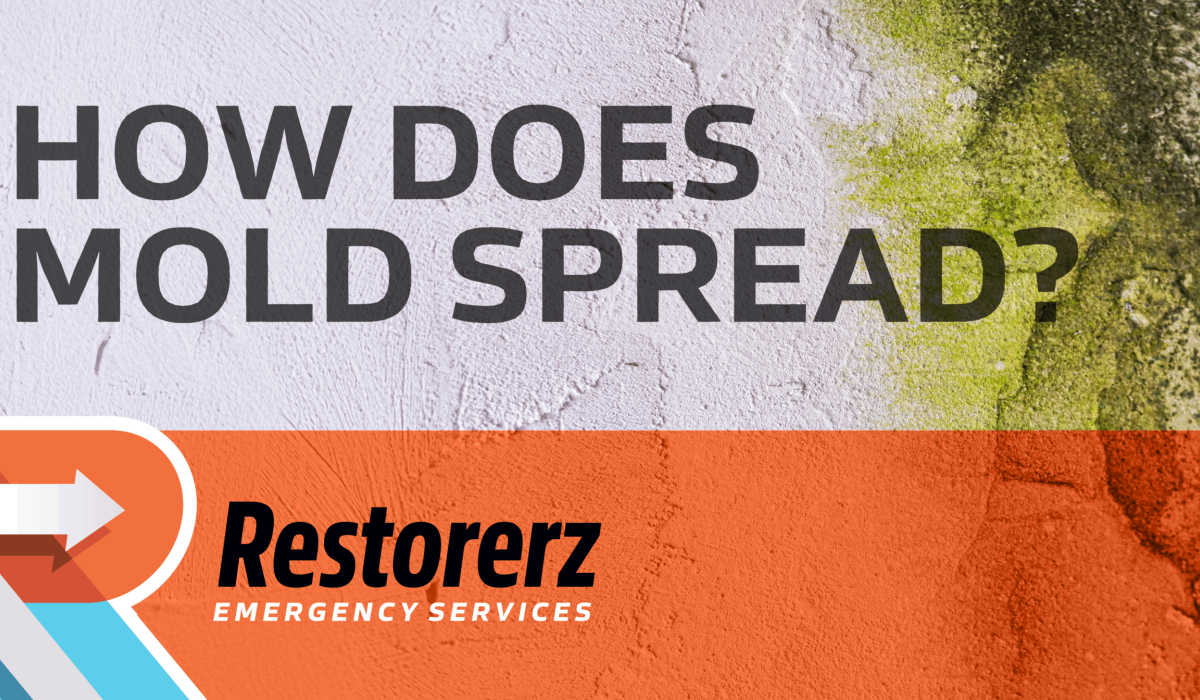
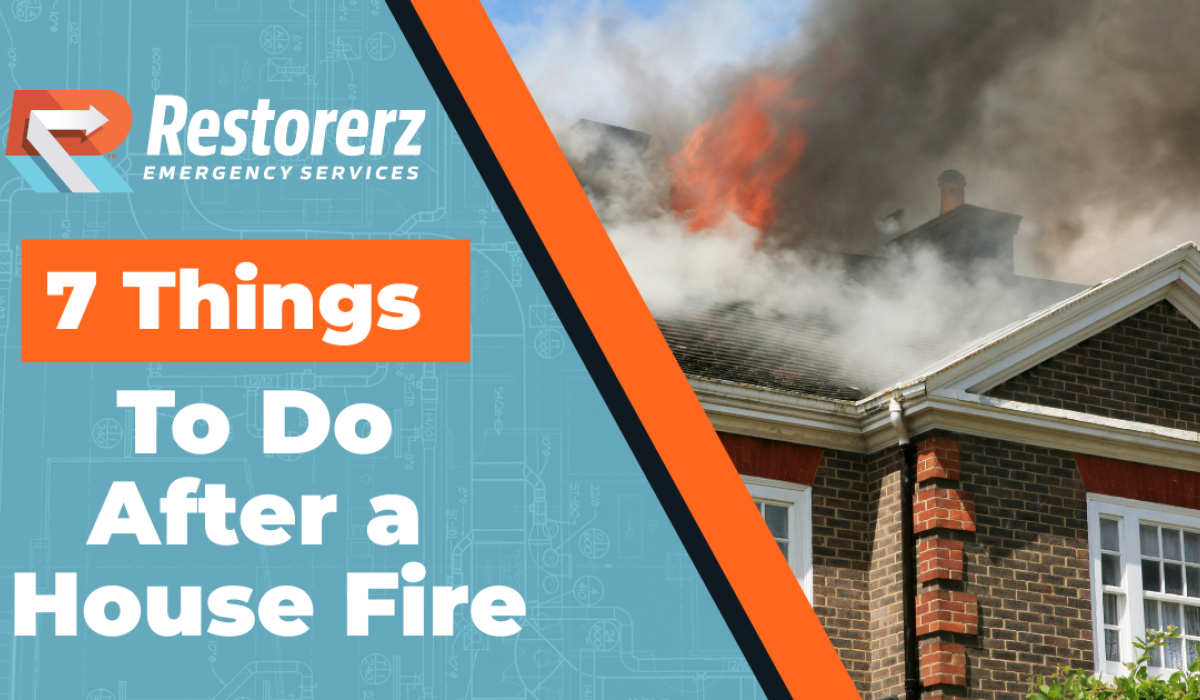

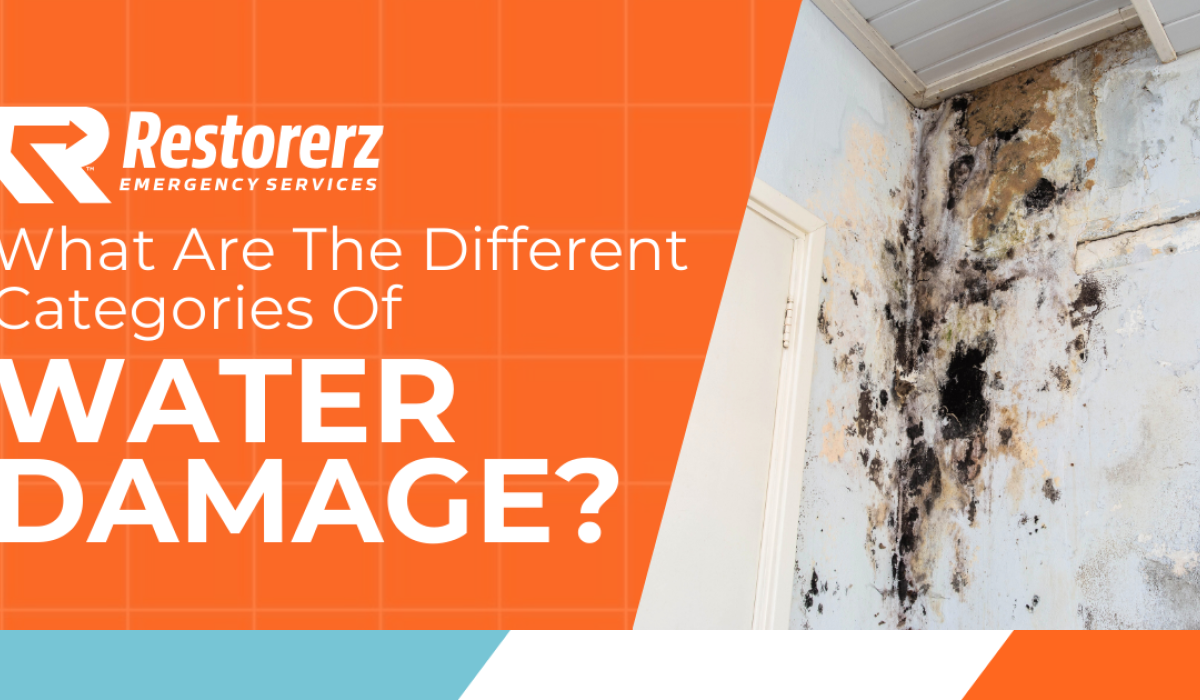

![All About Pink Mold [Prevention & Remediation Strategies]](/wp-content/themes/yootheme/cache/3a/Restorerz-Blog-All-About-Pink-Mold-Prevention-Remediation-Strategies-1-3a7c91cf.png)
